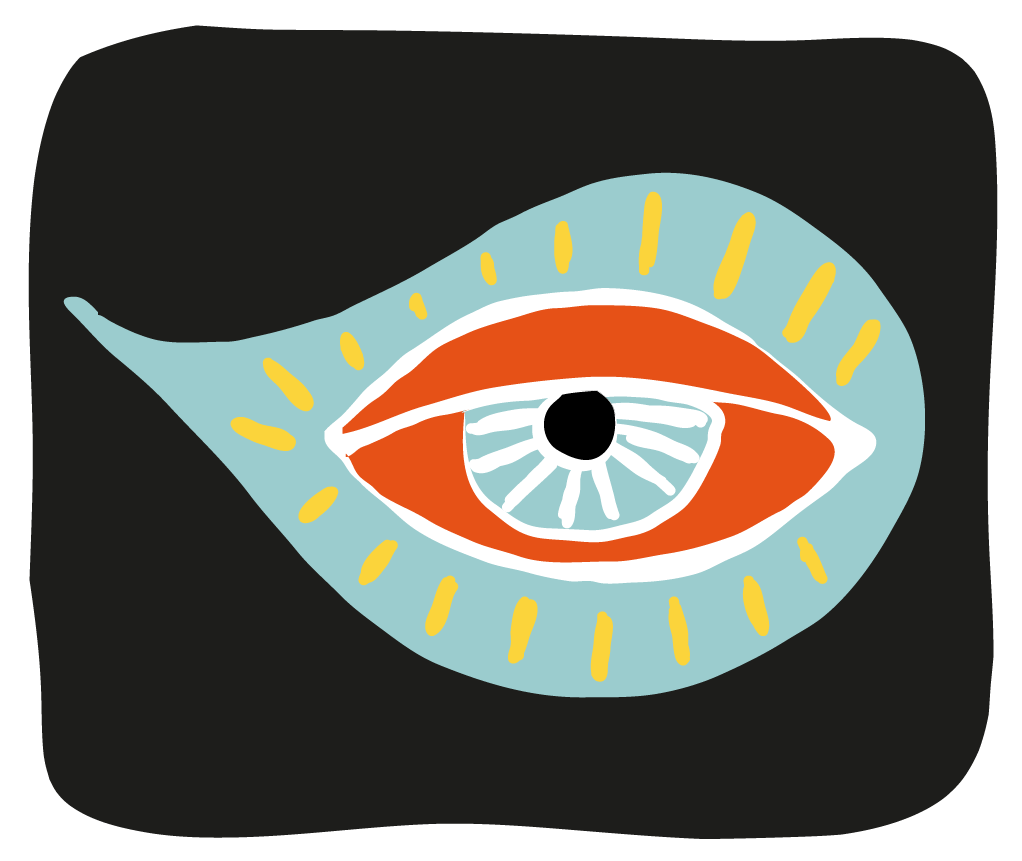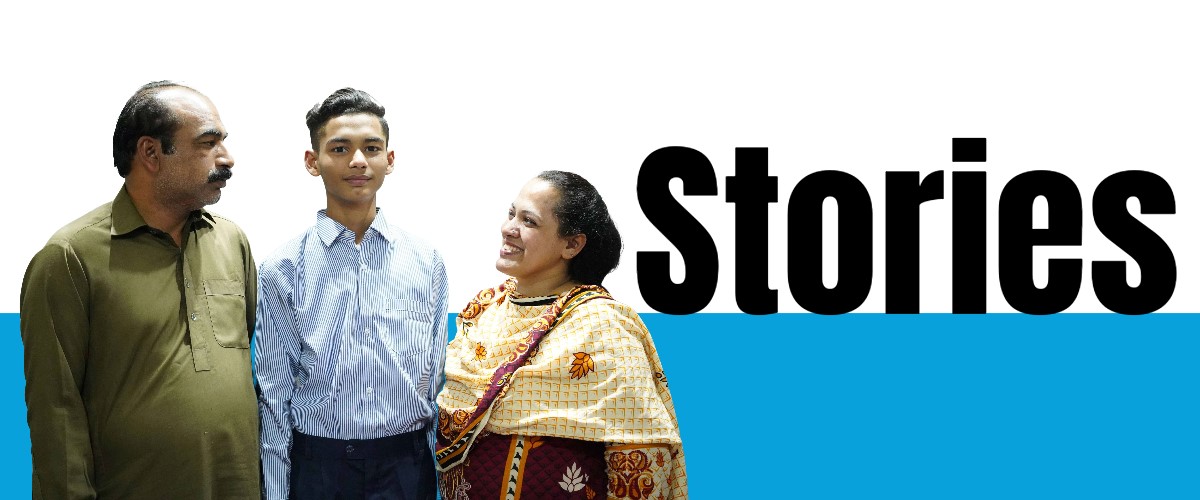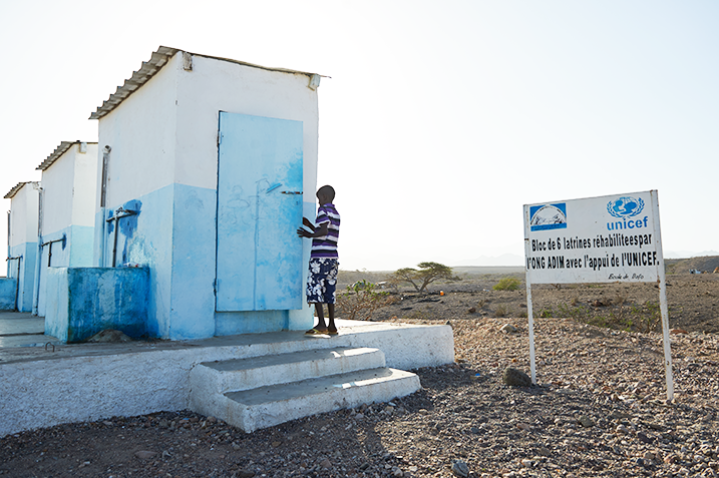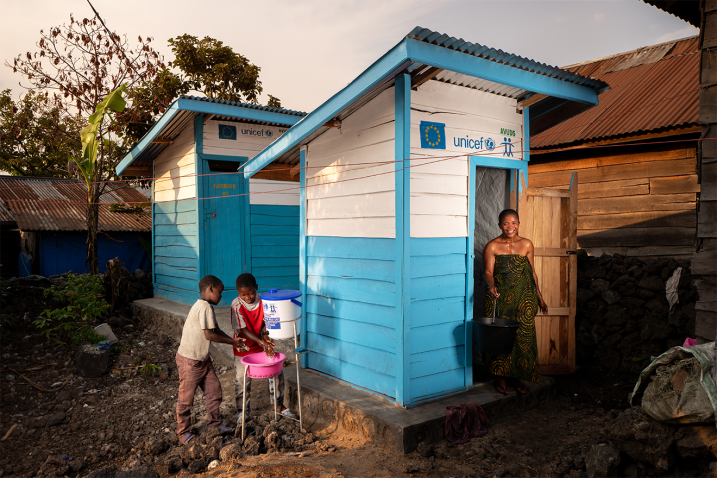World Toilet Day | United Nations (original) (raw)

Toilets are a place for peace
This essential space, at the centre of our lives, should be safe and secure. But for billions of people, sanitation is under threat from conflict, climate change, disasters and neglect.
‘Safe toilets for all by 2030’ is one of the targets of Sustainable Development Goal 6 – but the world is seriously off track.
3.5 billion people still live without safely managed sanitation, including 419 million who practise open defecation.
Faster action to improve and protect people’s access to sanitation is critical to building a fairer, more peaceful world.
Toilets under threat
Conflict, extreme weather events and disasters can destroy, damage or disrupt sanitation services.
When toilet systems don’t work – or don’t exist – untreated human waste spreads in the environment, unleashing deadly diseases such as cholera.
Governments must ensure that sanitation and water services are resilient, effective, accessible to everyone and shielded from harm.

Get involved!
Be part of the global campaign called ‘Toilets – A Place for Peace’. You can help raise awareness and drive action to tackle the sanitation crisis. Download resources to get involved and find out more about the connection between toilets and peace.
Key messages you should know on World Toilet Day 2024
- Toilets are a place for peace. This essential space, at the centre of our lives, should be safe and secure. But for billions of people, sanitation is under threat from conflict, climate change, disasters and neglect.
- Toilets are a place for protection. By creating a barrier between us and our waste, sanitation services are essential for public and environmental health. But when toilet systems are inadequate, damaged or broken, pollution spreads and deadly diseases get unleashed.
- Toilets are a place for progress. Sanitation is a human right. It protects everyone’s dignity, and especially transforms the lives of women and girls. More investment and better governance of sanitation are critical for a fairer, more peaceful world.
Did you know?
- 3.5 billion people still live without safely managed sanitation, including 419 million who practise open defecation. (WHO/UNICEF, 2023)
- 2.2 billion people still live without safely managed drinking water, including 115 million people who drink surface water. (WHO/UNICEF, 2023)
- 2 billion people still lack basic hygiene services, including 653 million with no facility at all. (WHO/UNICEF, 2023)
- Unsafe water, sanitation and hygiene are responsible for the deaths of around 1,000 children under five every day. (WHO, 2023)
- Children who live in extremely fragile contexts are three times more likely to practise open defecation, four times more likely to lack basic sanitation services and eight times more likely to lack basic drinking water services. (UNICEF, 2024)
Previous World Toilet Day themes
Explore the UN-Water archive of World Toilet Day resources going back to 2014, covering a range of themes, including toilets and equality, nutrition, jobs, wastewater, groundwater, and much more.
UN-Water, coordinating the UN's work on water and sanitation
There is no single UN entity dedicated exclusively to water issues. Over 30 UN organizations carry out water and sanitation programs, reflecting the fact that water issues run through all of the UN’s main focus areas. UN-Water’s role is to coordinate them all so that the UN family ‘delivers as one’ in response to water-related challenges.
A blueprint for acceleration on water and sanitation
The world is seriously off track to meet internationally agreed water-related goals and targets, including Sustainable Development Goal (SDG) 6 “to ensure availability and sustainable management of water and sanitation for all by 2030”. UN-Water’s Blueprint for Acceleration: SDG 6 Synthesis Report on Water and Sanitation 2023 is a concise guide to rapidly delivering concrete results.
Why do we mark International Days?
International days and weeks are occasions to educate the public on issues of concern, to mobilize political will and resources to address global problems, and to celebrate and reinforce achievements of humanity. The existence of international days predates the establishment of the United Nations, but the UN has embraced them as a powerful advocacy tool. We also mark other UN observances.



